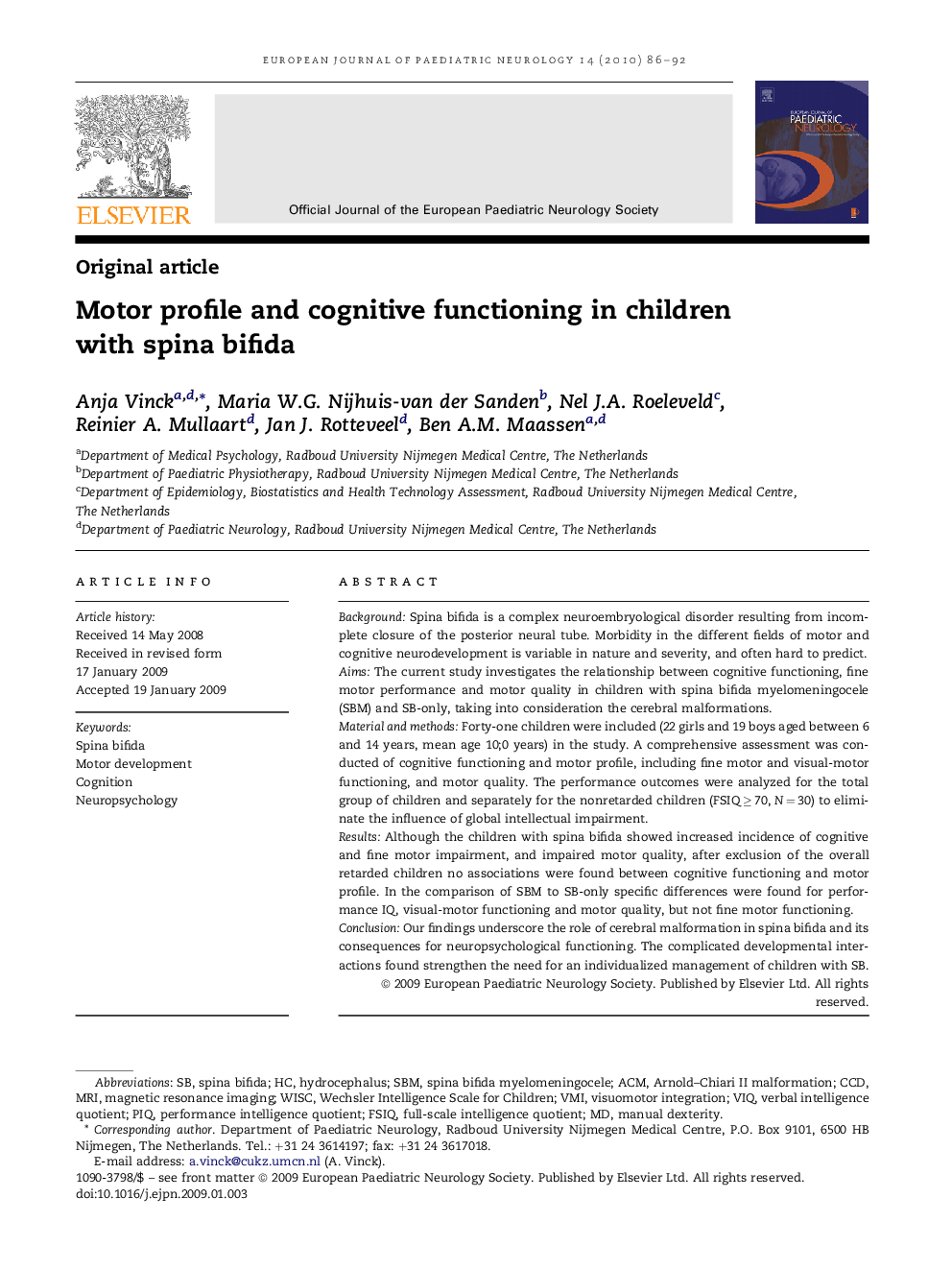| Article ID | Journal | Published Year | Pages | File Type |
|---|---|---|---|---|
| 3054322 | European Journal of Paediatric Neurology | 2010 | 7 Pages |
BackgroundSpina bifida is a complex neuroembryological disorder resulting from incomplete closure of the posterior neural tube. Morbidity in the different fields of motor and cognitive neurodevelopment is variable in nature and severity, and often hard to predict.AimsThe current study investigates the relationship between cognitive functioning, fine motor performance and motor quality in children with spina bifida myelomeningocele (SBM) and SB-only, taking into consideration the cerebral malformations.Material and methodsForty-one children were included (22 girls and 19 boys aged between 6 and 14 years, mean age 10;0 years) in the study. A comprehensive assessment was conducted of cognitive functioning and motor profile, including fine motor and visual-motor functioning, and motor quality. The performance outcomes were analyzed for the total group of children and separately for the nonretarded children (FSIQ ≥ 70, N = 30) to eliminate the influence of global intellectual impairment.ResultsAlthough the children with spina bifida showed increased incidence of cognitive and fine motor impairment, and impaired motor quality, after exclusion of the overall retarded children no associations were found between cognitive functioning and motor profile. In the comparison of SBM to SB-only specific differences were found for performance IQ, visual-motor functioning and motor quality, but not fine motor functioning.ConclusionOur findings underscore the role of cerebral malformation in spina bifida and its consequences for neuropsychological functioning. The complicated developmental interactions found strengthen the need for an individualized management of children with SB.
